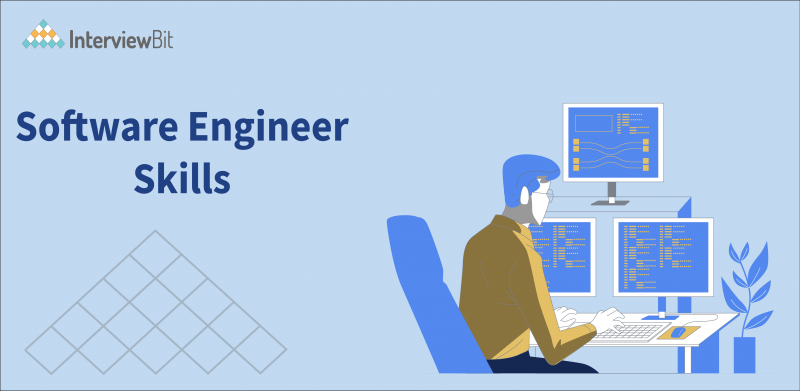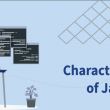Software engineering is a very fast-growing and emerging field. It is the dream of many to become a great software engineer in a reputed company. The heights of success and growth, not just monetary but growth and success in knowledge as well, are immense in the field of software engineering.
This field has a combination of settlement as well as excitement. One can be settled about this industry after entering as it is just going to grow and the opportunities are never going to be lost, but, it is also true that this field requires learners, problem solvers, and enthusiasts willing to learn and adapt to change really quickly as technology changes every day.
With a lot of new, exciting, talented, and hard-working minds willing to enter this field, it is very important for them to know about the skills that they should work on to become a good software engineer. This discussion focuses on technical as well as non-technical skills required to be a good software engineer.
Confused about your next job?
What is Software Engineering and Who is a Software Engineer?
Software Engineering: Software engineering is the process of following the engineering principles to build software. It is a process in which the user requirements are understood by the software engineer and his/her team and then the team works towards developing software that meets those requirements.
Testing: The work of a software engineer does not end on the completion of the development of the project. They have to test their developed (written) code also to find if there are any problems with the software.
Maintenance: Even after the software is completely tested and has been released to the public, the work is not even over yet. Now, the software engineers get feedback from the users for whom the project was built. So, they have to keep the user’s feedback on top of their priority list and make changes to the released software accordingly. This process of modifying the software or correcting it after its release is called software maintenance.
Skills of Software Engineer
There are 2 major categories in which the skills of a software engineer can be divided viz, Soft Skills and Hard Skills (Technical Skills). Let us talk about the soft skills first:
Soft Skills of a Software Engineer:
Yes, a software engineer should have several technical skills that we will talk about. Firstly, let us talk about some of the non-technical yet very important skills that a software engineer must have.
1. Problem-Solving (A positive Approach)
Well, problem-solving is a very important skill that is required for software engineering roles. You might have read/heard this at a lot of places but a very important factor of problem-solving skills is a positive attitude. If there is any issue, bug, or major/minor technical fault, a software engineer must approach it with a very positive attitude of solving the problem within a minimum amount of time. If the attitude is negative and the engineer thinks that the problem cannot be solved or the time is less, the same reflects in the solution, or the problem might not even be solved.
2. Communication Skills (Both Written and Verbal)
We saw that the roles and responsibilities of a software engineer involve a lot of communication between the software engineer and the customers as well as the communication of a software engineer with other professionals in and out of the organization.
When a team of software engineers sits down with the customer to list down the requirements of the product, their written communication should be very good because the requirements are listed on a document called Software Requirement Specification Document (SRS Document) and this acts as a written agreement to the requirements of the software for both the sides. Apart from this, in an office, various written documentation, memorandums, etc. all require good written communication.
Sometimes before deploying the software, software engineers have to train some users to use their product so that these users can test them for a while and find any major issue if any before its release. This requires high-quality verbal communication from the software engineers to the customers. Apart from this, interactions within the team and organization, presenting one’s ideas in front of a presentation, etc. all require good verbal communication.
3. Teamwork and Leadership Skills:
Teamwork is such an important skill that without teamwork, it is impossible to sustain in the software industry. Most of the new software engineers that join an organization and are new to this field suffer most of the issues because they are not team players.
However, you do not need to worry about this much. This is because most of the people have not worked in a team before and even if they had worked, it would have not been in such a collaborative way as done in the software industry.
Leadership skills are also very important in the software industry. When your position in an organization becomes high, you have to take the work out of people by not being a “boss” rather being a “Leader”. You have to support and encourage your teammates and resolve their issues on time. You have to be together with everyone, not above them because that’s who a leader is. This skill might even come useful to you on the very first day of the work as you might have to lead an intern or someone like that. This skill becomes highly useful and most important when your position grows as a team-lead or product manager or even higher positions.
4. Observation Skills:
This is one of the most underrated yet very powerful skills. Observation is very important in the field of software engineering. Observing a potential bug before deployment can lead to saving millions of dollars for the organization. The testing and debugging especially require a lot of good observation skills. High problem ability also comes as a result of observing patterns of similar problems.
So, these were some of the major soft skills that are necessary to have for a software engineer. However, we know that software engineering, unlike many other professions, is very different in terms of skill requirements. Soft skills are important but you cannot become a software engineer without having good technical skills. So, let us now move on to the hard skills of a software engineer.
Hard Skills (Technical Skills) of a Software Engineer
Following are the most important technical skills for software engineers:
1. Data Structures and Algorithms:
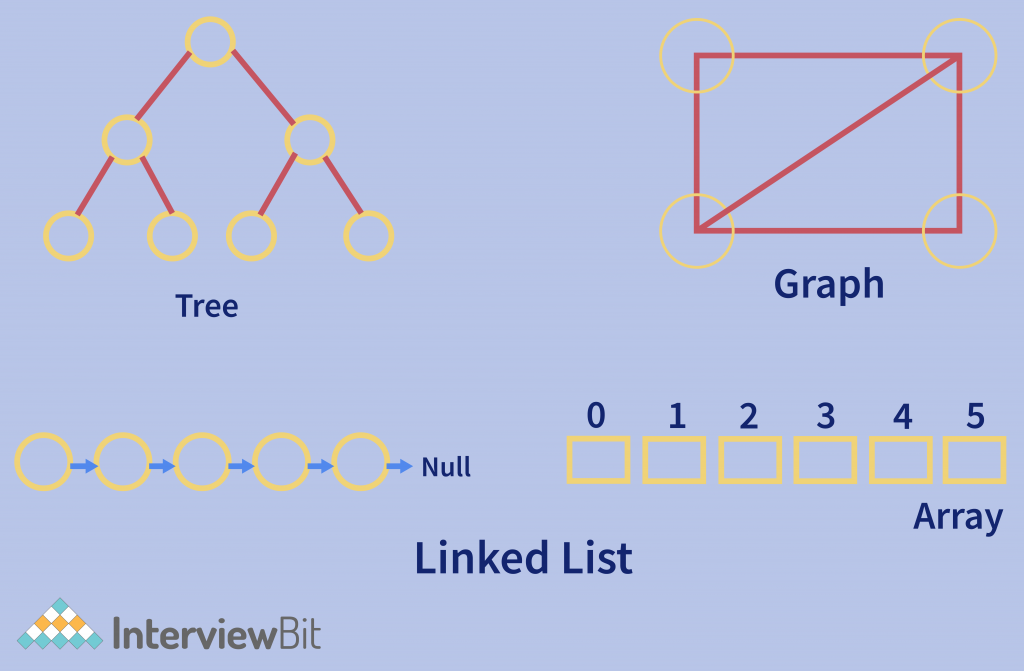
This is the most important technical skill that all tech giants look for in an aspiring software engineer. These skills are so important because they help the organizations judge the person on their problem-solving ability, their conceptual knowledge, and their ability to compete and come up with unique and optimized solutions. First, you have to learn a programming language like C++, Java, Python, etc, and then you have to learn problem-solving using data structures and algorithms. You can use to learn and practice programming in our site i.e. InterviewBit.
2. Object-Oriented Programming Systems (OOPS):
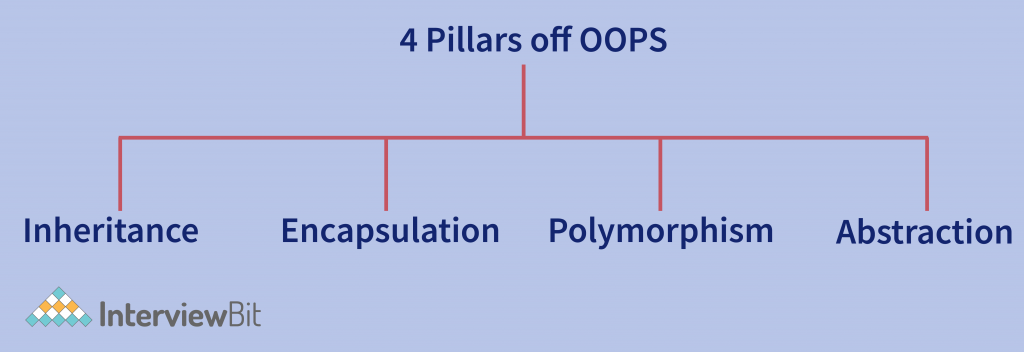
The knowledge of Object-Oriented Programming is a must for any software engineer. Almost all the programming languages that are widely in use nowadays are based on Object-Oriented principles like Encapsulation, Polymorphism, Abstraction, and Inheritance. This becomes very important that the programming language you choose for learning data structures and algorithms i.e. problem-solving, in general, must be Object-Oriented. Yes, most of the universities and colleges start off the programming journey with the C programming language. You should learn it as it clears the basic concepts of programming but after that, you should move to some Object Oriented Programming languages like C++, Java, Python, JavaScript, etc.
Object-Oriented Programming is so important because the whole industry of Software Engineering deals with and solves real-life problems and Object-Oriented Programming relates a lot to the real world. The objects in Object-Oriented Programming are real-world entities with some properties and functions. It makes problem-solving a lot easier and the 4 pillars of OOPS viz Abstraction, Inheritance, Polymorphism, and Encapsulation, provide a lot of functionality to the programmers. Hence, OOPS is a must-have skill for any software engineer.
3. Databases and DBMS:
The knowledge of DBMS (Database Management Systems) is a must when you are aspiring to become a software engineer. This comes as another core Computer Science subject. It is really important because everything in an organization is stored in a database and not only that, any project that a software engineer works on, usually requires a knowledge of database and DBMS principles. It is not mandatory that you should learn any particular database like PostgreSQL or MongoDB, etc. You can learn any database of your choice. However, knowledge of SQL is expected from any software engineer. Apart from just knowing the database, knowing the database concepts like Normalisation, ACID properties, Transactions, and deadlocks, all of this is really important. So, the knowledge of DBMS concepts is very necessary for a software engineer.
4. Operating System (OS):
The operating system is yet another very important core Computer Science subject and its conceptual and in-depth knowledge are really necessary for software engineers. OS concept help an engineer to develop the memory and CPU/process efficient code. We work daily on a laptop or a desktop computer and we interact with the OS daily. Thus, it is important to understand the concepts of an operating system and its processes, multithreading, locks, etc. The knowledge of operating systems helps develop a good fundamental of core Computer Science. Various apps and websites behave differently on different operating systems. The practical study of operating systems will help to understand this behavior and implement our knowledge practically when we are in the industry. Hence, OS is a very important skill to have.
Recommendation: Apart from the OS you use, it is really important to learn the Linux Operating System as it is a very helpful and most commonly used OS when it comes to Software Development
5. Development:
One of the most important technical skills is development. What do we mean by development? This means any kind of development like, website development or android development or game development, etc. This is needed so that the software engineer gets a very basic idea of what software development is and whether their interest lies in the field or not. When we do development, we build websites/apps/games on our own and can even deploy them and make them publicly available. This is the real and practical aspect of software development. The different projects that one makes also showcases one’s ability to learn new stuff and the devotion towards product development.
6. Miscellaneous:
Some of the skills are not necessary to have for a software engineer (entry-level software engineer), but they are good to have. Some of these skills are listed below:
- Computer Networking: The knowledge of networking is really helpful and Computer Network also comes as one of the core Computer Science subjects. Certain organizations might require you to have a good hold over the concepts of Computer Networks because of their Job Description and requirements.
- System Design: System design is another very important skill and a new emerging skill whose requirement is increasing day by day. Organizations require knowledge of Low-Level and High-Level Design from experienced software engineers. However, for new and entry-level software engineers, it is a good to have but not necessary skill (at least for now).
- Software Development Life Cycle: The entire process of software development from when its requirement arises to when the software is no longer in use is called as Software Development Life Cycle (SDLC). The knowledge of the software development life cycle can help a software engineer in knowing about the processes of development and its various stages even before having any experience of working at any organization. This can be really helpful as usually, only experienced software engineers have knowledge about these processes.
Responsibilities of a Software Engineer:
So, from the above stated, we can understand that the software engineer does not only do programming, he/she also has to interact with the consumers at various stages, either during the beginning of the project to understand their requirements or even after the release of the software (for its maintenance). Let us see some of the major responsibilities of a software engineer:
Understanding the User’s requirements:

The very first step of developing any software product is understanding the requirements of the user. Also, it is not just understanding the requirements of the user about the software, this role of a software engineer is also about explaining the customer/user (who might not be from a technical background), the technical constraints on a project.
For instance, if the customer wants to build an app or a website to sell spectacles online in which they also want to implement a functionality which uses Artificial Intelligence (AI) to calculate the eye power of the customer who wants to make a purchase, the software engineer will make them understand that the use of Artificial Intelligence will provide only 60-70% of accuracy or the cost that they have decided for their project will definitely overshoot because of the use of AI.
Developing the Software (Coding):

This is the most famous part of the roles and responsibilities of a software engineer. There is no doubt about the fact that if you are a software engineer, the major part of your work time will be coding only but it is very important to understand that this is the majority of the job, not the entire job.
Integration and Unit testing:
After the project has been completed, the software engineers also have to test the part of the project that was built by them. They have to make sure that there are no errors or faults in the part that they have built and they must correct the errors if any. This is called unit testing.Apart from just testing their own part, the software engineers need to collaborate/or do peer programming with other software engineers who worked on the same module as they were working on and they have to together test the entire module. For instance, if an engineer integrated the payment gateway in an e-commerce website, the module is the payment module where there might be many other functionalities also like return policies, delivery charges etc. Now, after testing the payment gateway, this software engineer would have to collaborate with others who have worked on the payments module to check the entire module as a whole. The testing of the entire project (system) is not usually done by software engineers. It is done by System testers who are specially employed for the purpose of testing.
Deploying the Project:
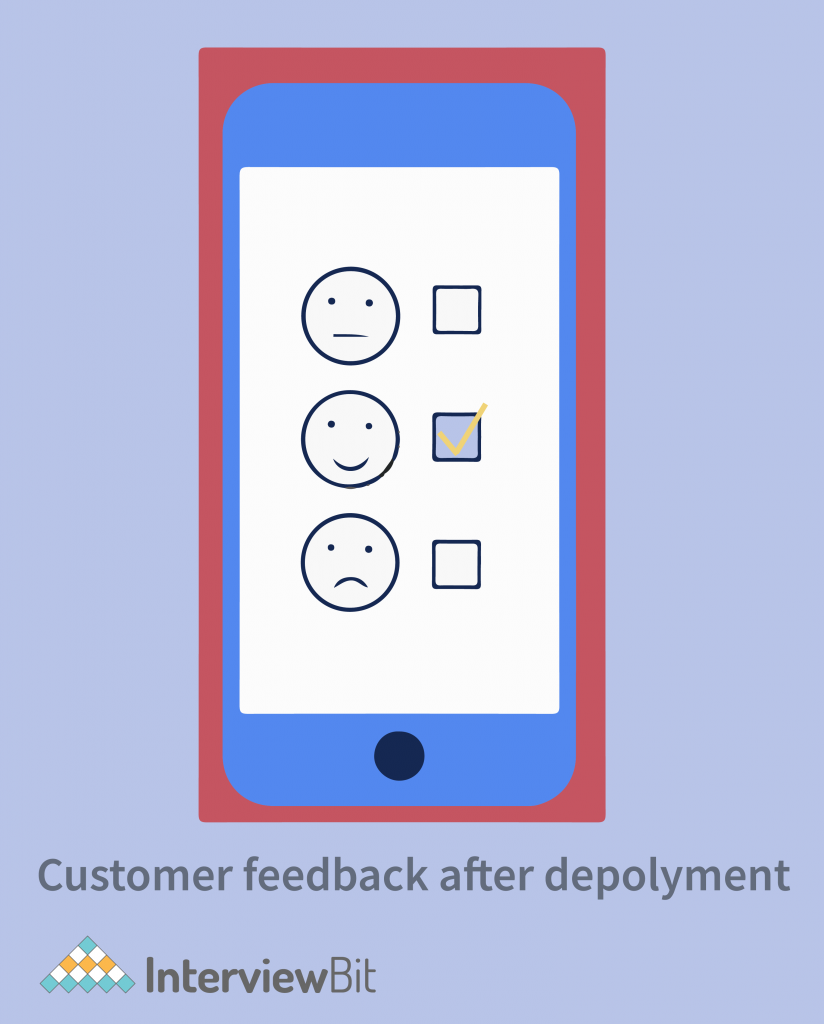
Many times, software engineers also perform the task of deploying the software to production which in lay-man terms means releasing the software for public use.
Maintenance:
As already discussed, a software engineer has to fix the bugs and introduce new features to the software after the software has been released. This is called software maintenance.
Apart from these also, there are various other small and big responsibilities of a software engineer. So, the skills that the software engineer must possess depend upon these roles and responsibilities.
Conculsion
So, we have discussed all the technical as well as non-technical skills that a software engineer must have. However, Software Engineering is a very dynamic and ever-changing field. The skills that are relevant today, might now be relevant after a few years. So, the most important skill for a software engineer to sustain in the industry is the ability to never stop learning and the ability to adapt to the changes very quickly.
Hope you become a great software engineer and enjoy the journey. Best wishes from InterviewBit.
Additional Resources
- Software Engineer Resume
- Software Engineering Books
- Software Engineering Projects
- Characteristics of Software
- Principles of Software Engineering
- How to Become a Software Engineer
- Software Developer Vs Software Engineer
- Software Engineer Salary
- Software Engineer Salary in New York
- Amazon Software Engineer Salary
- Apple Software Engineer Salary
- Facebook Software Engineer Salary


